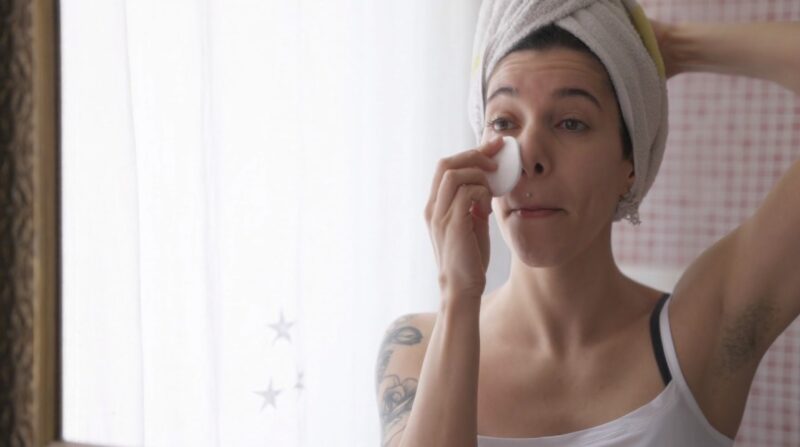Self-care is a term that has gained significant traction in recent years. It refers to the practice of taking deliberate actions to maintain or improve one’s physical, mental, and emotional health. These actions can range from engaging in physical exercise, and maintaining a balanced diet, to taking time out for relaxation and leisure activities.
Self-care is not a luxury, but a necessity for overall well-being. It is about prioritizing oneself, acknowledging one’s needs, and taking steps to meet those needs.
The importance of self-care for overall well-being cannot be overstated. It is the foundation upon which we build our health, happiness, and overall quality of life. When we neglect self-care, we risk burnout, stress, and a host of physical and mental health problems. On the other hand, when we prioritize self-care, we are better equipped to handle life’s challenges, maintain our health, and achieve our goals.
The concept of routines plays a crucial role in self-care. Routines provide structure and predictability, which can be comforting and reduce stress. They help us to incorporate self-care activities into our daily lives consistently, making it more likely that we will maintain these beneficial practices over time. Routines can be flexible and adaptable to our changing needs and circumstances, making them a valuable tool in our self-care arsenal.
What Is Boring Self-Care
“Boring self-care” is a term coined by Hannah Daisy, an occupational therapist, and mental health advocate. It refers to mundane, everyday tasks that contribute to our well-being but are often overlooked or neglected because they are not glamorous or exciting. These tasks may include activities like brushing our teeth, making our beds, eating nutritious meals, or getting a good night’s sleep.
Examples of activities that may be considered boring self-care are plentiful. They include basic personal hygiene routines, household chores, organizing and decluttering living spaces, planning and preparing meals, and many others. These tasks may seem mundane and unexciting, but they play a crucial role in maintaining our health and well-being.
Incorporating boring self-care into our routines is essential for several reasons. First, these activities contribute to our physical health and well-being. Second, they provide a sense of accomplishment and control, which can boost our mood and self-esteem. Finally, they help us to create a stable and comfortable living environment, which can reduce stress and promote relaxation.
Benefits of Boring Self-Care
Promotes relaxation and stress reduction. Engaging in mundane tasks can provide a break from the demands and pressures of our busy lives. It allows us to focus on the present moment, which can have a calming and grounding effect. Furthermore, maintaining a clean and organized living environment can reduce stress and promote a sense of calm and tranquility.
Also enhances our mental and emotional well-being. Completing mundane tasks can provide a sense of accomplishment and control, which can boost our mood and self-esteem. Furthermore, routines provide structure and predictability, which can be comforting and reduce anxiety.
In addition, It can improve our productivity and focus. When our living environment is clean and organized, we are better able to concentrate on our tasks and responsibilities. Furthermore, maintaining a regular sleep schedule and eating nutritious meals can boost our energy levels and cognitive functioning, making us more productive and efficient in our work and other activities.
Establishing a Self-Care Routine
The importance of routines in self-care cannot be overstated. They provide structure and predictability, which can be comforting and reduce stress. They help us to incorporate self-care activities into our daily lives consistently, making it more likely that we will maintain these beneficial practices over time routines begin with identifying personal self-care needs and goals.
This involves taking stock of our physical, mental, and emotional health and identifying areas where we could improve. It also involves considering our lifestyle, preferences, and constraints. Once we have a clear understanding of our needs and goals, we can begin to plan our self-care activities accordingly.
Creating a schedule or daily/weekly plan for self-care activities is a practical way to establish a routine. This could involve setting aside specific times each day for activities like exercise, relaxation, and personal hygiene. It could also involve planning meals and grocery shopping to ensure that we are eating a balanced and nutritious diet. The key is to create a routine that is realistic, achievable, and adaptable to our changing needs and circumstances.
Incorporating into Routines
Recognizing the value of mundane activities is the first step in incorporating boring self-care into our routines. These activities may not be glamorous or exciting, but they play a crucial role in maintaining our health and well-being. They provide a sense of accomplishment and control, contribute to a clean and comfortable living environment, and promote relaxation and stress reduction.
Prioritizing self-care activities that may seem boring but are necessary is also important. This could involve setting aside specific times each day for these activities or finding ways to make them more enjoyable or meaningful. For example, we could listen to a podcast or audiobook while doing household chores, or turn meal preparation into a creative and enjoyable activity.
Finding enjoyment and fulfillment in simple and repetitive tasks is another key aspect of incorporating boring self-care into our routines. This involves shifting our perspective and recognizing the value and benefits of these tasks. It also involves being present and mindful during these activities, rather than rushing through them or viewing them as a chore.
Examples of Activities
Basic personal hygiene is a prime example of boring self-care. These include activities like brushing our teeth, washing our faces, taking a shower, and getting a good night’s sleep. These tasks may seem mundane, but they play a crucial role in maintaining our physical health and well-being.
Household chores and cleaning are another examples of boring self-care. These activities contribute to a clean and comfortable living environment, which can reduce stress and promote relaxation. They also provide a sense of accomplishment and control, which can boost our mood and self-esteem.
Organizing and decluttering living spaces, and planning and preparing meals are also important aspects of boring self-care. These activities can promote relaxation, enhance our productivity and focus, and contribute to our physical health and well-being.
Making Boring Self-Care Enjoyable
Creating a pleasant environment for self-care activities can make boring self-care more enjoyable. This could involve playing relaxing music while doing household chores, lighting a scented candle while taking a bath, or creating a cozy and inviting space for relaxation and leisure activities.
Adding elements of mindfulness and presence to mundane tasks can also enhance their enjoyment. This involves focusing on the task at hand, rather than rushing through it or thinking about other things. It also involves appreciating the sensory experiences associated with the task, such as the feel of warm water on our skin when we take a shower, or the smell of fresh laundry.
Incorporating entertainment or learning while engaging in boring self-care can also make these activities more enjoyable. For example, we could listen to a podcast or audiobook while doing household chores, or watch a cooking show while preparing meals.
Overcoming Resistance
Identifying personal barriers and resistance towards mundane activities is the first step in overcoming resistance to boring self-care. This could involve reflecting on our attitudes and beliefs about these activities and challenging any negative or unhelpful thoughts. Developing strategies to overcome procrastination and resistance is also crucial.
This could involve breaking tasks down into smaller, manageable steps, setting specific and achievable goals, and rewarding ourselves for completing tasks. It could also involve finding ways to make these activities more enjoyable or meaningful, such as listening to a podcast while doing household chores or turning meal preparation into a creative and enjoyable activity.
Seeking support from others or joining accountability groups can also be helhelp overcometance to it Sharing our goals and progress with others can provide motivation and encouragement, and having others hold us accountable can increase our likelihood of sticking to our routines.
Finding Balance in Self-Care Routines
Avoiding excessive focus on boring self-care activities is important for maintaining balance in our self-care routines. While these activities are important, they should not dominate our routines or our lives. It’s also important to incorporate activities that we find enjoyable and fulfilling, such as hobbies, leisure activities, and social interactions.
Incorporating variety and excitement into our self-care routines can also help to maintain balance. This could involve trying new activities, exploring new places, or learning new skills. Variety can prevent from becoming monotonous and boring, and an keep us engaged and motivated.
Adapting our routines to our changing needs and circumstances is also crucial for maintaining balance. Our self-care needs and goals may change over time, and our routines should reflect these changes. Flexibility allows us to continue meeting our self-care needs, even when our circumstances change.
Cultivating a Positive Mindset
Shifting our perspective and embracing the value of mundane activities is key to cultivating a positive mindset toward boring self-care. These activities may not be glamorous or exciting, but they play a crucial role in maintaining our health and well-being. Recognizing their value can help us to view them in a more positive light, and to find enjoyment and fulfillment in them.
Recognizing the long-term benefits of consistent self-care can also help to cultivate a positive mindset. While the benefits of boring self-care may not be immediately apparent, they accumulate over time. Consistent routines can improve our physical health, enhance our mental and emotional well-being, boost our productivity and focus, and foster self-discipline and personal growth.
Celebrating small achievements and progress in our self-care journey is another way to cultivate a positive mindset. This could involve acknowledging and rewarding ourselves for completing tasks, maintaining our routines, or making progress toward our self-care goals. Celebrating our achievements can boost our motivation and self-esteem, and can make our self-care journey more enjoyable and fulfilling.
Self-Care Routines for Different Life Areas
Physical self-care routines are an important aspect of our overall self-care practice. These routines may include activities like regular exercise, maintaining a balanced diet, getting enough sleep, and attending regular health check-ups. These activities contribute to our physical health and well-being and can boost our energy levels and cognitive functioning.
Emotional and mental self-care routines are also crucial. These routines may involve activities like relaxation and stress management techniques, engaging in hobbies and leisure activities, maintaining a positive mindset, and seeking support from others when needed. These activities can enhance our emotional well-being, reduce stress and anxiety, and boost our mood and self-esteem.
Social and relationship self-care routines are another important aspect of our overall self-care practice. These routines may involve activities like maintaining healthy relationships, setting boundaries, seeking support from others, and engaging in social activities. These activities can enhance our social well-being, provide emotional support, and contribute to a sense of belonging and community.
Professional and career self-care routines are also important. These routines may involve activities like maintaining a healthy work-life balance, setting and achieving career goals, seeking professional development opportunities, and managing work-related stress. These activities can enhance our professional well-being, boost our job satisfaction and performance, and contribute to our personal growth and development.
Personalizing Routines
Tailoring routines to individual preferences and needs is key to personalizing boring self-care routines. This involves considering our lifestyle, preferences, and constraints, and planning our self-care activities accordingly. It also involves being flexible and adaptable, and adjusting our routines as our needs and circumstances change.
Experimenting with different activities to find what works best is another way to personalize our self-care routines. This could involve trying different types of exercise, relaxation techniques, or hobbies, and observing how they affect our well-being. It could also involve adjusting the timing, frequency, or duration of our self-care activities to find what works best for us.
Allowing flexibility and adapting routines as circumstances change is also crucial for personalizing our self-care routines. Our self-care needs and goals may change over time, and our routines should reflect these changes. Flexibility allows us to continue meeting our self-care needs, even when our circumstances change.
Conclusion
In conclusion, boring self-care and routines play a crucial role in our overall well-being. They contribute to our physical health, enhance our mental and emotional well-being, boost our productivity and focus, and foster self-discipline and personal growth. While these activities may seem mundane and unexciting, they are essential for our health and happiness.
Incorporating into our routines may require a shift in perspective, recognizing the value of mundane activities, and finding enjoyment and fulfillment in simple and repetitive tasks. It may also involve overcoming resistance, maintaining balance, and personalizing our routines to our individual needs and preferences.
Related Posts:
- How Social Media Directly Impacts Your Mental Well-Being
- Understanding How HGH Influences Mental Well-Being:…
- Exploring the Link Between Meditation and Mental…
- Top 10 Must-Read Books for Nurturing Mental Health…
- 15 Simple Ways to Attract People - Stand Out from the Crowd
- Art Therapy for Post-Traumatic Stress Disorder: The…


















